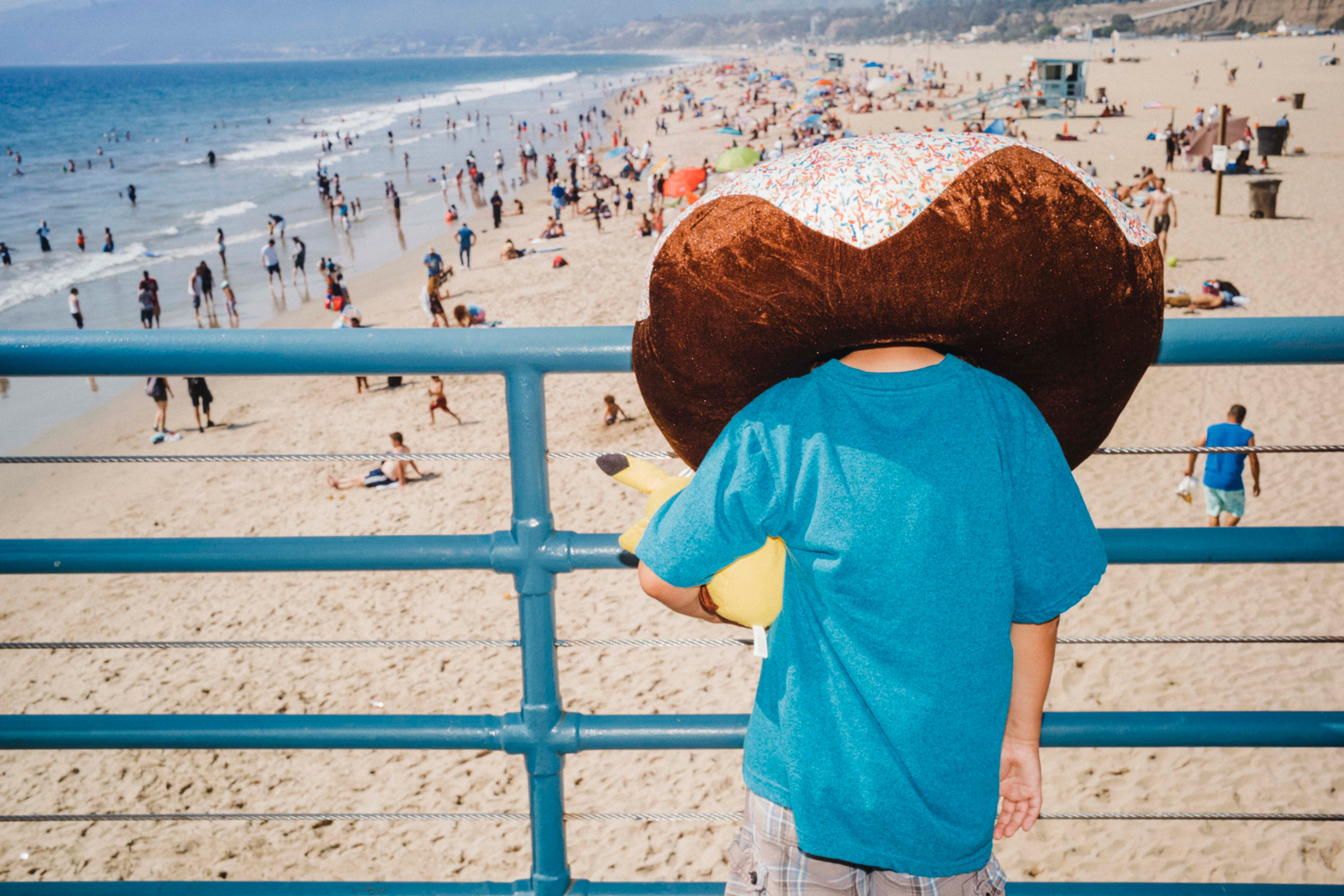
On a recent visit to Los Angeles, I struck up a conversation with a homeless army veteran sitting outside the Rainbow Bar & Grill on the Sunset Strip. Nights there were more lucrative, he explained—the punters, warm with liquor, were a little freer with their spare change and the conviviality of their conversation. The days were different. In the mornings, he liked to catch a bus down to the ocean. To sit on the edge of the Pacific and be still.
The Pacific means something quite different from the Atlantic: the Atlantic is something to be crossed; the Pacific is a destination. Today, it seems marked by a strange lack of grandeur; Santa Monica, where the wooden pier juts out into the Pacific Ocean, marks the end of Route 66, the mother road for many of those migrating from the eastern states. The great American journey West culminates here, with a Ferris wheel and a candy store, and a branch of the Bubba Gump Shrimp Company.
It is this short stretch of coast that Sarah began shooting in 2015. Back then, America and the California shoreline seemed to mean something quite different. But as the months unfolded, America’s identity has been reshaped—by an election, by gathering questions about immigration, environment, gender, race, sexual assault, and gun ownership, perhaps even by the meddling of Russia.
What the West means has shifted considerably since 1620, too. It has been colored by America’s global political and cultural dominance over the last century, by the rise of the Internet, by the new ascendance of the East, and the growing economic clout and productivity of China and India. It has shifted, even, since the end of the Obama presidency and the arrival of Donald Trump.
There have arisen, too, new terrains to conquer. In securing the Democratic Party nomination for president in the summer of 1960, John F. Kennedy spoke of the new age and fresh challenges ahead. “I am asking each of you to be new pioneers on that New Frontier,” he said, paving the way for a decade of space exploration and technological advance. The years since have brought the new electronic frontier of cyberspace, characterized by the same spirit of self-determination and freedom seen on the plains of Kansas in the nineteenth century.
Meanwhile, on the West Coast, the beach has remained much the same: the sun undaunted, tourists strolling the boardwalks, gulls, burger bars, daytrippers, surfers. The leveling, visceral pleasures of our leisure hours—of shoreline, warm skin, swimmers in their underwear. Tender moments that somehow unite.
Swim out into the Pacific and look back to the shore. To the couple kissing in the hot afternoon, and the young girl rollerskating along the front, and the family setting up camp on the soft, warm sand. To the blues and yellows and pinks of fierce, determined revelry. And look up, too, to the planes that leave LAX, taking off over the sea, shooting westward before turning back to the east.
How hard it is not to think in this moment of the vastness of this continent, of the near-three thousand miles from coast to coast, of your own journey here to this point west of West, and of all those who traveled that route before you, impelled, as the American historian Frederick Jackson Turner put it in 1893, by an “irresistible attraction” and traveling with all the “buoyancy and exuberance which comes with freedom.”
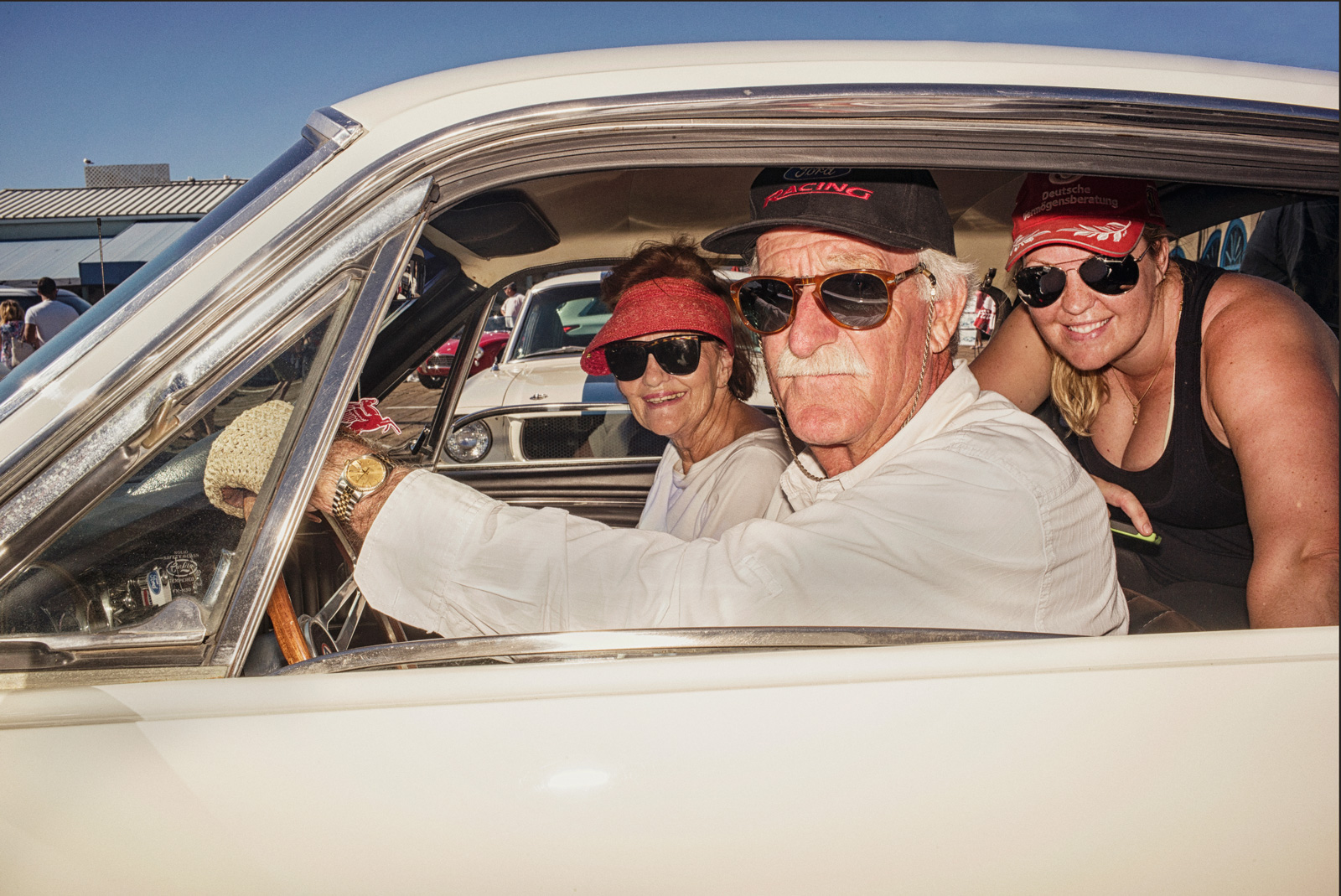
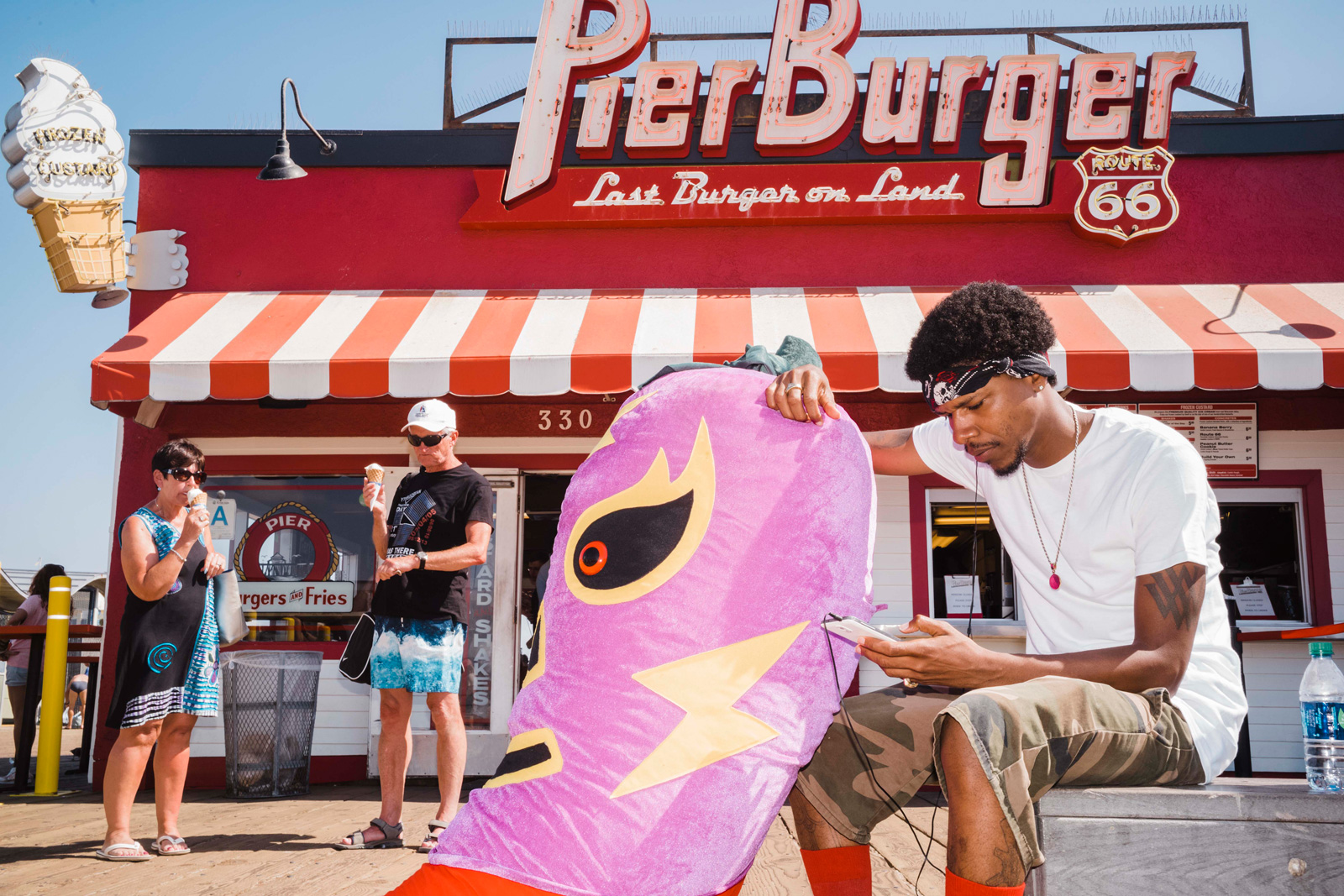


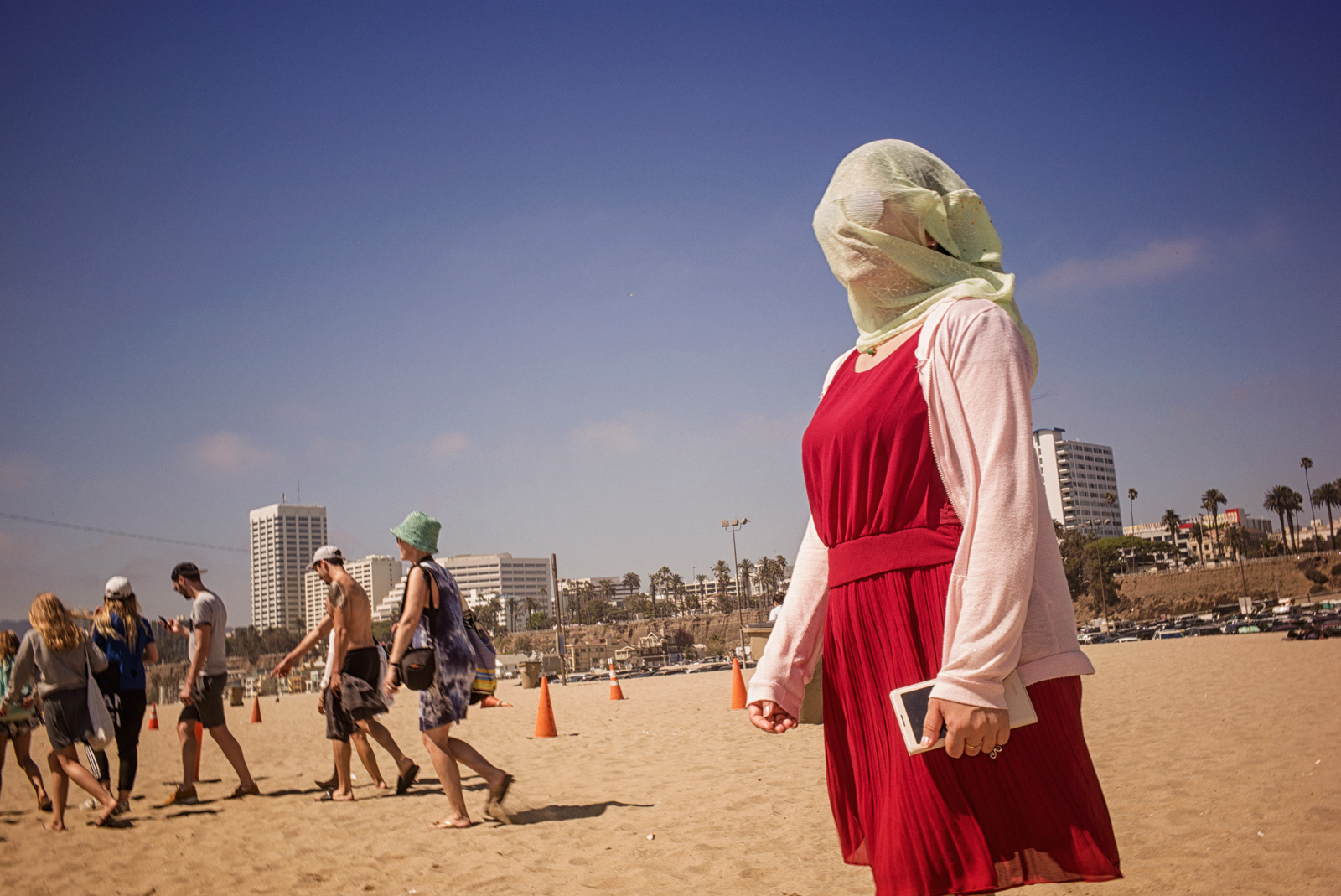
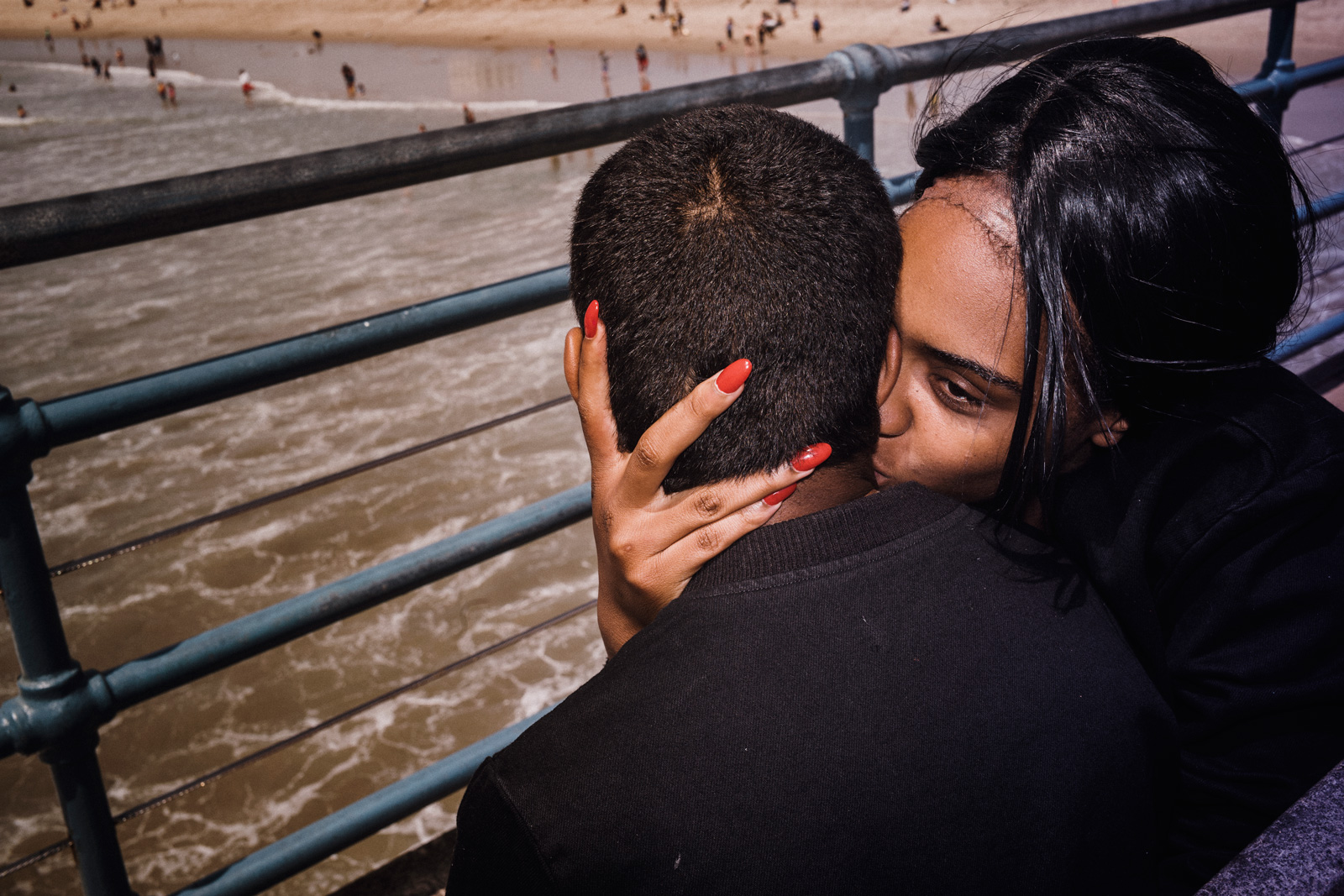
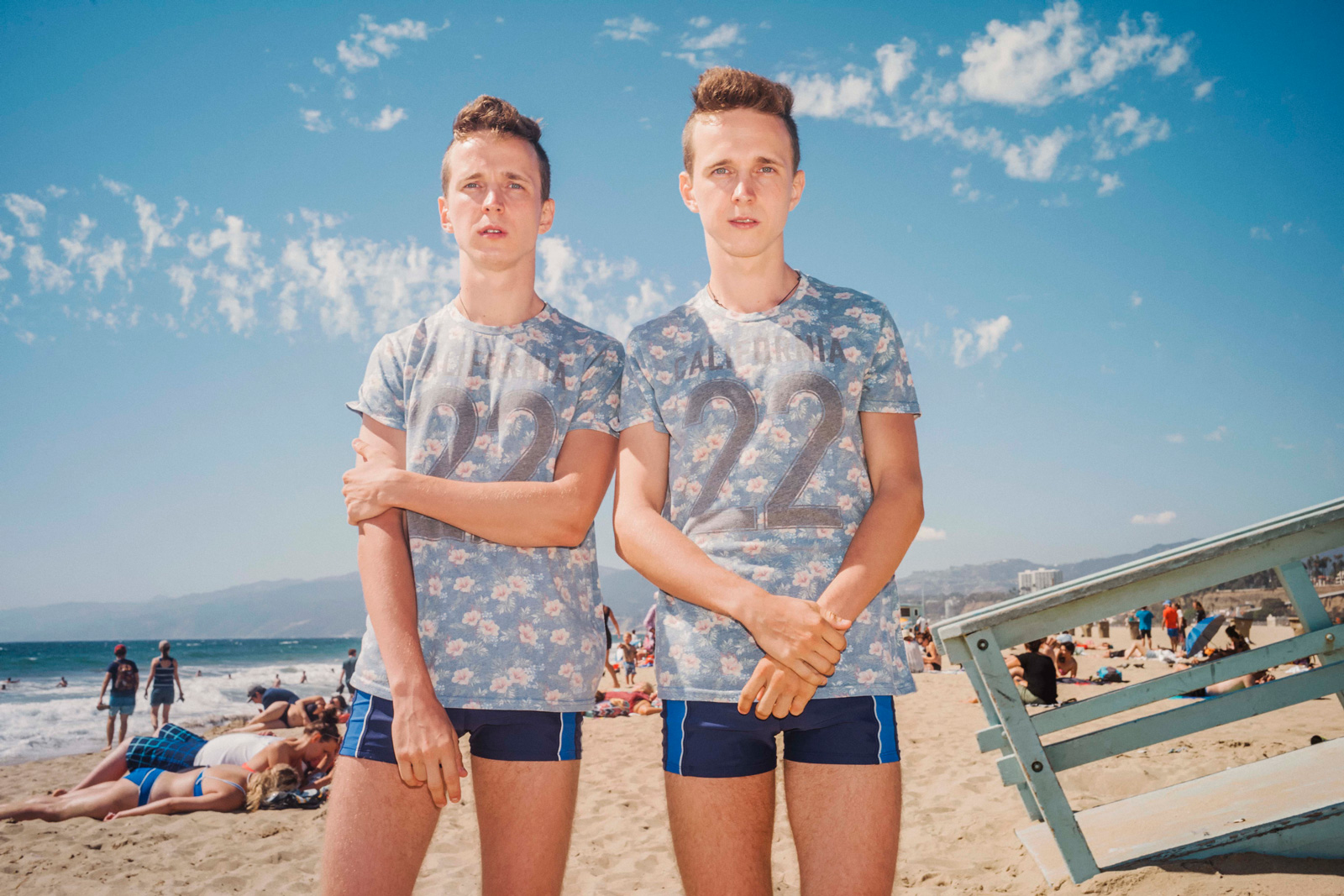
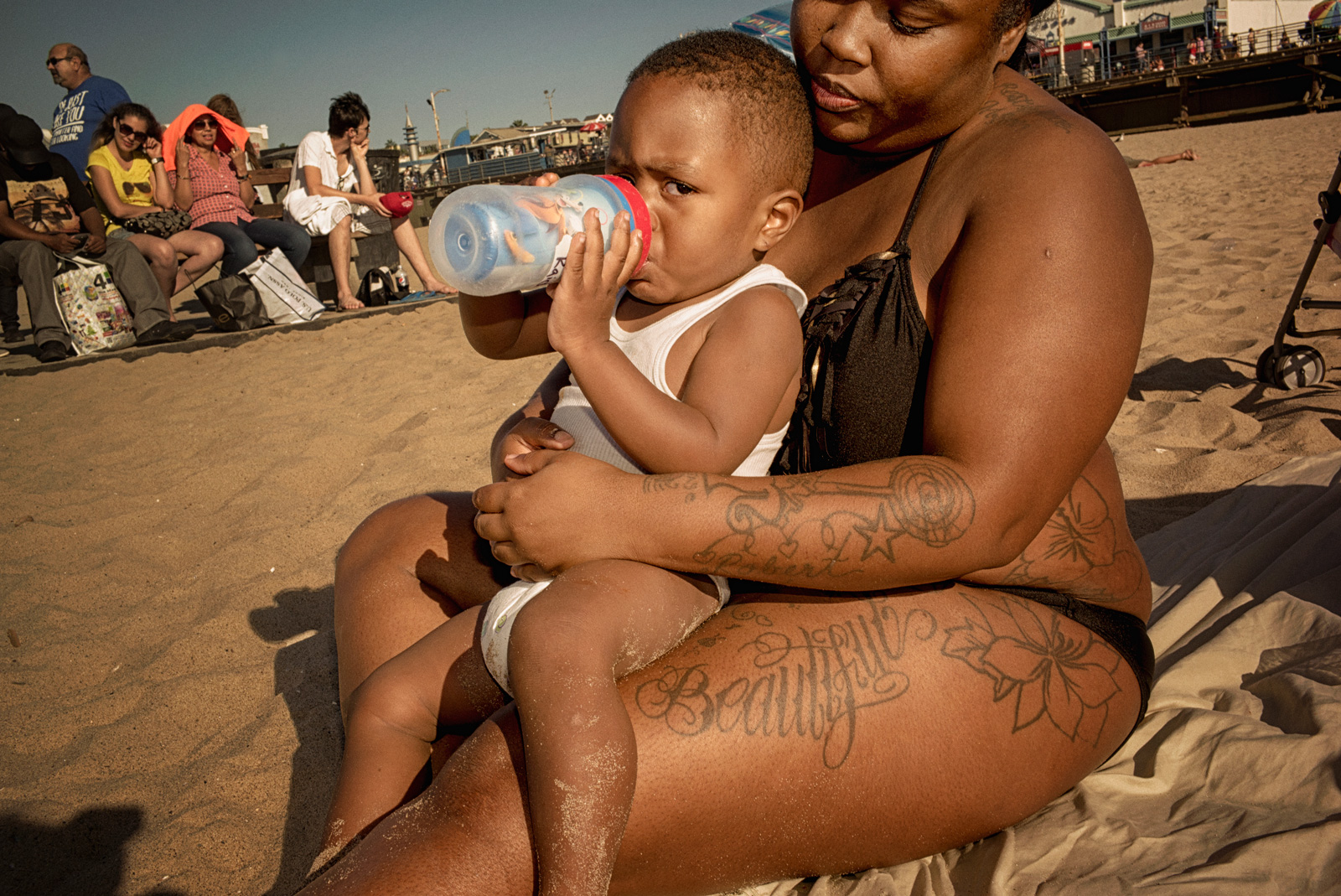
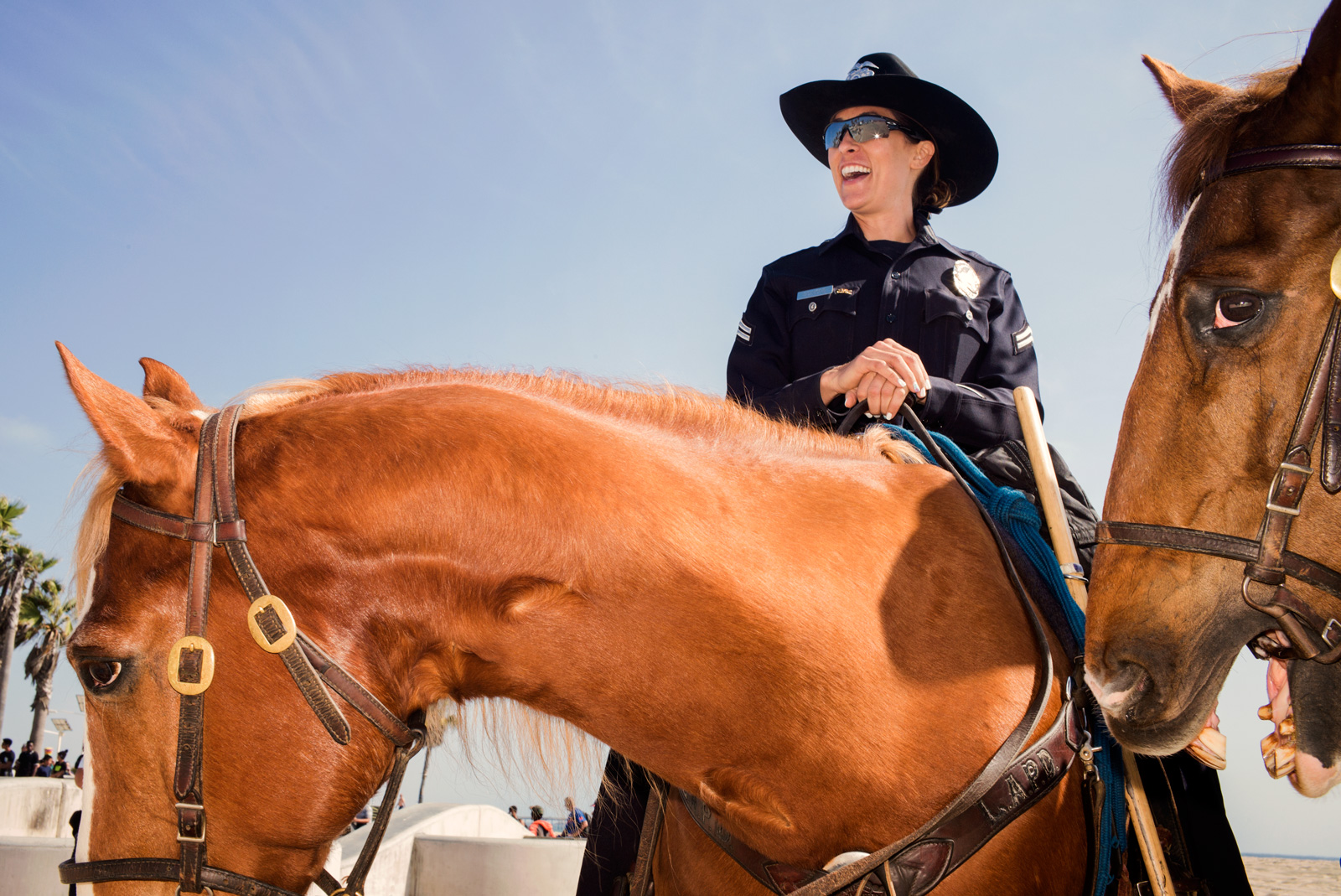
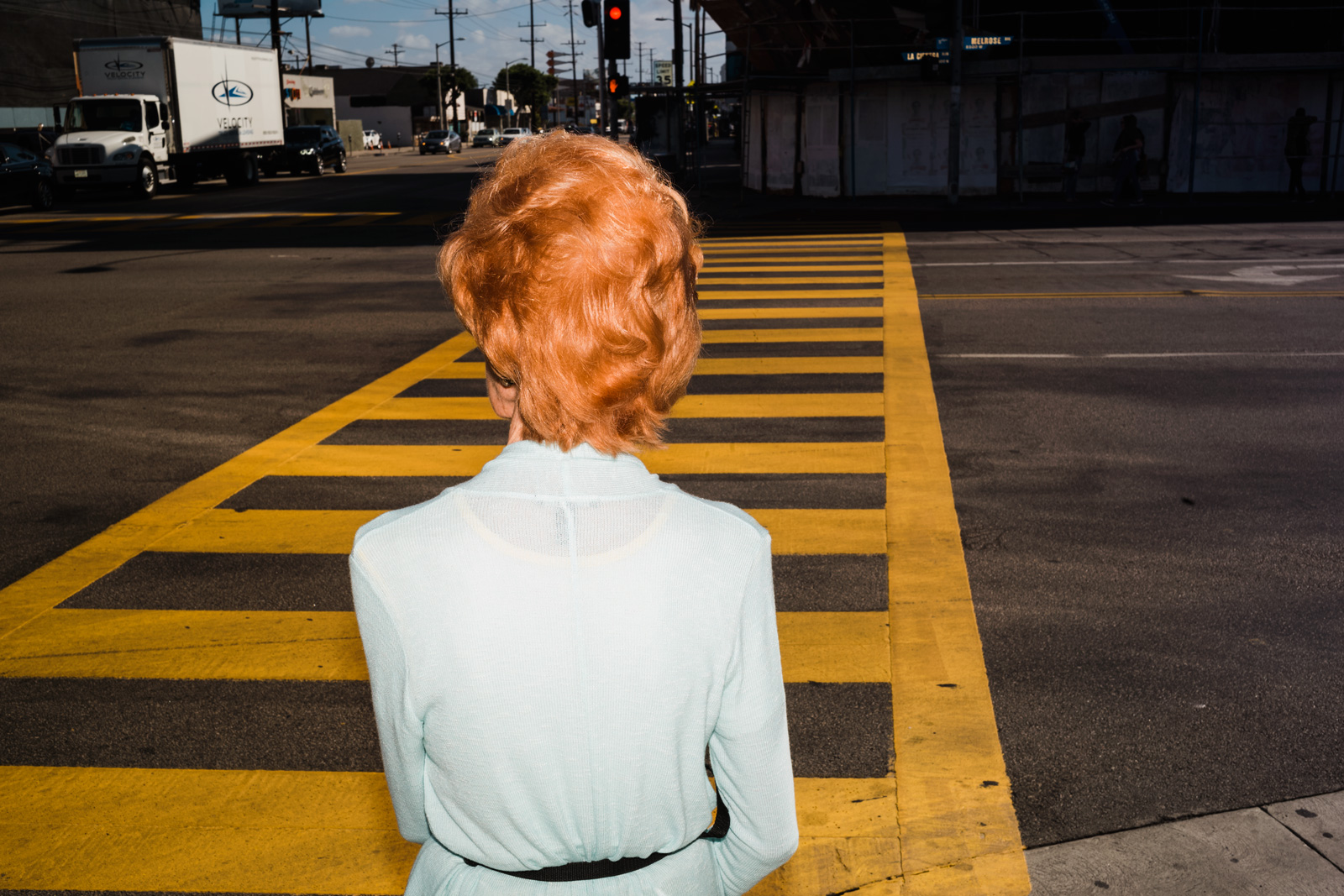
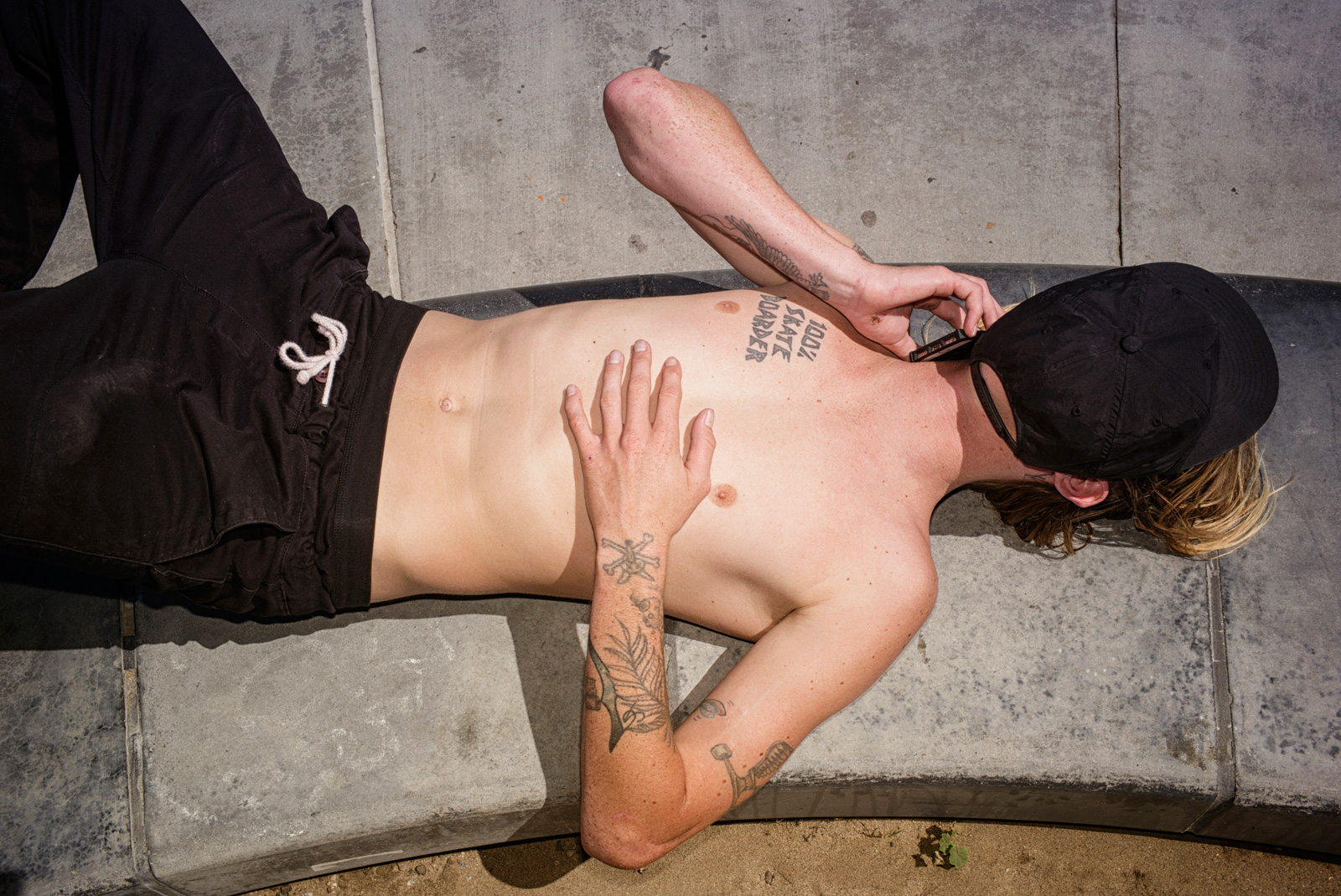
This photo-essay is adapted from West of West, published by Unbound.


